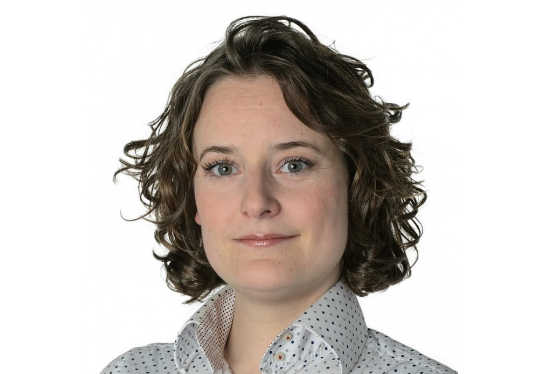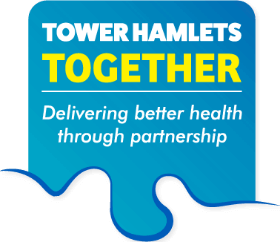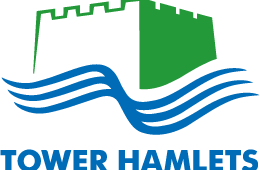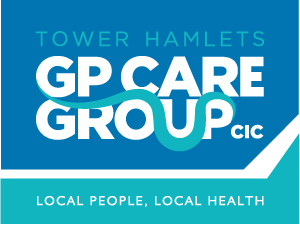Amy's Monthly Briefing - February 2023
The borough’s vision of a seamless health and care experience for its citizens.

At February’s THT Board, we were lucky to hear from two powerhouses of community leadership - Safia from Women's Inclusive Team and Sufia from East London Mosque
At February’s THT Board, we were lucky to hear from two powerhouses of community leadership - Safia from Women's Inclusive Team and Sufia from East London Mosque. They shared women’s experiences of domestic violence and the barriers to accessing mainstream support, particularly faced by Somali and Bangladeshi women, outlining how cultural and tribal customs can mean women do not understand their rights or that some of the abuses they face are rights infringements, and could lead to the affected women not being invited to mediation or to contribute to support plans agreed between families. Local service providers and stakeholders too often fail to understand the huge challenges women face and the specific cultural nuances, meaning some specialist charities wouldn’t refer them into mainstream services as they do not trust that appropriate support will be put in place.
The Board heard about a fantastic pilot where two independent domestic violence advisers were hosted within the WIT service, providing creative outreach and 1:1 sessions with women – the IDVAs were Somali women with experience of working in mainstream DV services e.g. Solace or Hestia, supported by community connectors who linked in with Bangladeshi women too. As a result, 62 women accessed support and some were very high risk (MARAC) level – but there is a lack of funding and resources to continue this bespoke support. Sufia similarly outlined the counselling, frontline information, advice and guidance, community language support and advocacy provided within East London Mosque, which has empowered women to know they could leave abusive relationships. Crucially, the service uses faith as a driver, emphasising that violence against women and girls is anti-Islam and bringing men including Imams along with them as allies, often using sermons to reinforce this message. They underlined that cultural diversity and a faith-based approach is vital.
The Board agreed we need a further conversation about future funding and resources for such bespoke support across the partnership. Other discussions covered the need for a single point of access so GPs can link into culturally specific services. This would ensure women are not ‘lost’ in the system, running the risk of stop/start funding leading to a loss of an outreach/access point and also loss of learning for organisations. There is a need to consider intersectionality too, e.g. for LGBTQ+ Somali and Bangladeshi women who face extra DV risks and violence outside of the home.
Next up, we heard a presentation on the Culturally Appropriate Communications Toolkit here developed by public health download here. This is a set of considerations that prompt people to ask different questions, which has been tested with services. The ambition is to embed this system-wide and support frontline teams to see the toolkit as ‘how we do business’ to best serve our communities, rather than an ‘add on’. The value of this approach is it leads to more co-design and power-sharing, addresses stigma, demonstrates transparently how our services are culturally appropriate, and has strong alignment with the local health and wellbeing strategy. The Board endorsed the goal to embed the toolkit across the system within one year in the first instance, by identifying specific campaigns and projects where it can be rolled out, supported and documented to evidence impact –with a report back in December 2023.
The deep dive topic this month was waiting lists and the elective backlog. NEL is leading an integrated system programme to recover the waiting list, which is aligned to the national recovery plan and does not just cover activity in acute hospitals, but how we better use capacity across the partnership. Key themes from the discussion were: if you live in Tower Hamlets, you will wait longer than in Hackney or Romford, which contributes to health inequalities; where patients are being referred is driving the longest waits; some increases in admitted waiting lists are due to winter pressures on elective beds; NEL has not achieved the national goal for no one to be waiting over two years by July 2022; the current ambition for nobody to be waiting over 78 weeks by March 2023 remains a huge challenge across NEL, with current figures showing we expect about 400 people will still be waiting this long.
The main discussion point was how can we use all the capacity in the system – do we need to think differently about where people are offered appointments? While the Royal London is a local hospital for many, it is also a trauma centre which does lots of complex surgery. Additional capital money is being brought forward for community hubs and theatre capacity, to create high volume, low complexity surgical hubs including at Mile End. Barts’ CEO outlined how enormous emergency pressure is limiting what we can achieve in planned care and Tower Hamlets residents are a minority of waiters, even though most waiters are at the Royal London (for highly specialised treatment) – but that the public nevertheless deserve better. The Board agreed the partnership response must include making sure people are ‘waiting well’ and kept informed throughout; actively encouraging Tower Hamlets residents who need low complexity procedures to accept appointments elsewhere more quickly; making better use of the council’s information, advice and guidance service and community navigators; rolling out general communications about how being open to appointments elsewhere helps you to be seen more quickly and relieves pressure on the NHS; giving GPs more accurate information so they can have confidence that referring to alternative provision will mean their patients are seen sooner and prevent re-presentation in primary care.
Finally, the Board had the opportunity to input into the new Tower Hamlets Plan, which spans the wider strategic partnership beyond health and care, chaired by the Mayor. We discussed the need to grapple with socioeconomic and environmental challenges that impact on health outcomes – housing, the cost of living, our growing population especially young people, deeply entrenched health inequalities. The goal is to agree a five-year plan to 2028, with a small number of cross-cutting issues – e.g. mental health was a theme identified previously by Chairs of all the partnership Boards as a priority. THT Board agreed to contribute further to the plan as it is developed, via our representations on the Partnership Executive Group.








